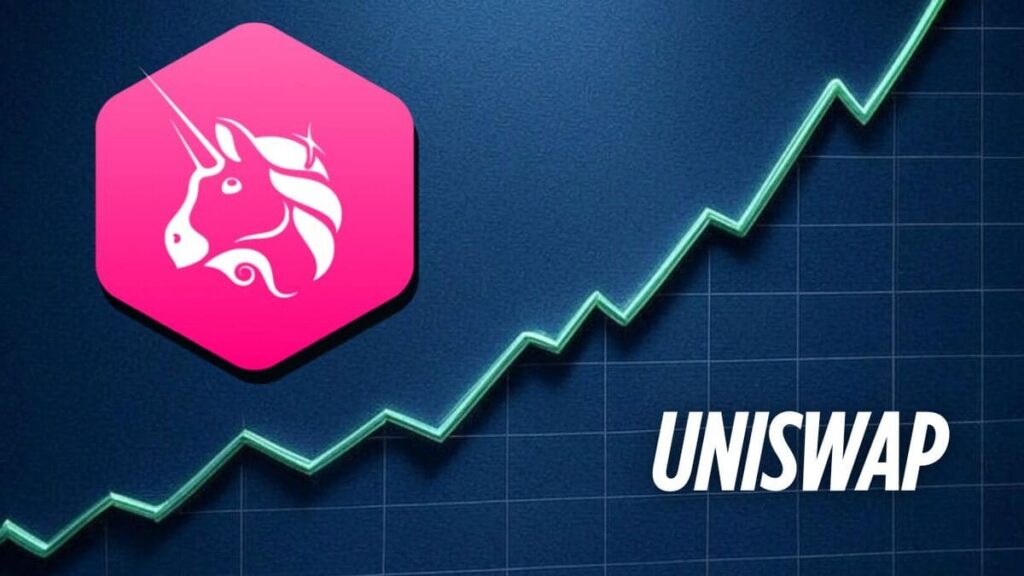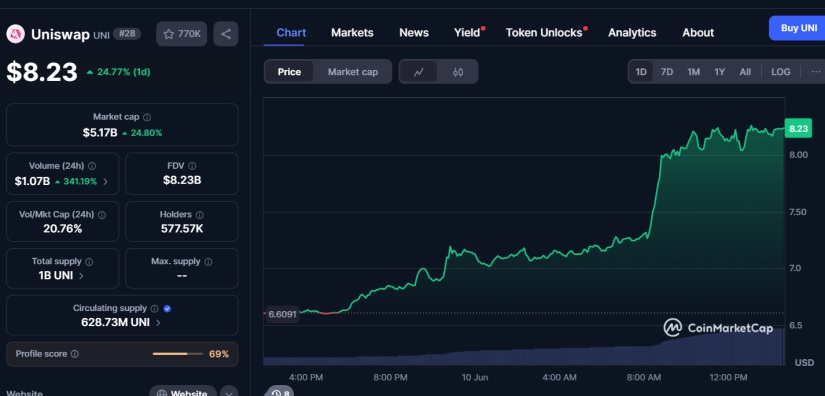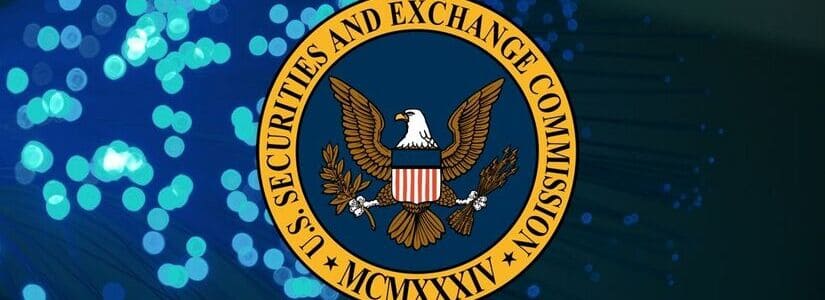TL;DR
- Uniswap surged 24.8% following Paul Atkins’ proposal to ease regulatory requirements for DeFi projects in the U.S.
- Aave hit an all-time high with $26.166 billion locked, and Uniswap surpassed $92 billion in monthly trading volume during May.
- Ethereum rose more than 7%, driven this time by the rally in DeFi tokens that led the gains.
Uniswap jumped 24.8% after a day marked by a shift in tone from the U.S. Securities and Exchange Commission (SEC). Paul Atkins, the current SEC Chair, proposed creating a regulatory exemption for DeFi projects, a measure that would allow these platforms to operate with fewer legal restrictions. The announcement immediately boosted the prices of several tokens linked to decentralized applications.
Atkins made the statement during a roundtable discussion in Washington, where he argued that the right to custody of one’s own assets and economic freedom should remain central principles in digital financial development. This stance contrasts sharply with the previous Chair, Gary Gensler, who had tightened regulations on the sector and even classified some governance tokens as securities subject to regulation.
Uniswap and Other Tokens Push Ethereum Higher
The market reaction was swift. Uniswap rose to $8.23, marking a 24.8% gain, while Aave and Sky increased 16% and 15%, respectively. Ethereum also climbed more than 7%, outperforming Bitcoin and leading crypto market indexes. Analysts noted that, unlike usual trends, this time DeFi tokens drove Ethereum’s rise rather than the other way around.
Meanwhile, Changpeng Zhao, founder of Binance, celebrated the day as a turning point for the industry. Investment funds and DeFi platforms also welcomed the shift as a concrete opportunity to develop on-chain products without facing outdated regulatory hurdles.
Aave reached a record $26.166 billion in assets locked, while Uniswap surpassed $92 billion in monthly volume during May. Sky Protocol manages $5.3 billion and continues its model of issuing asset-backed stablecoins.
Attention now turns to the U.S. Congress, where the Clarity Act could establish specific rules for governance tokens













